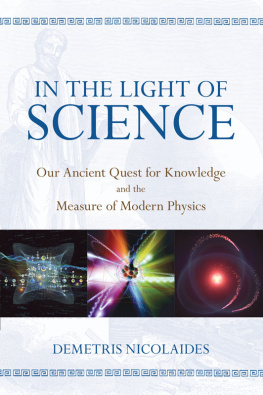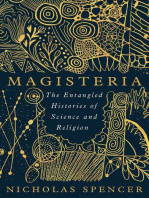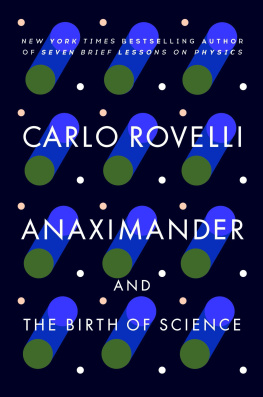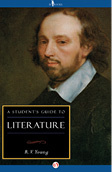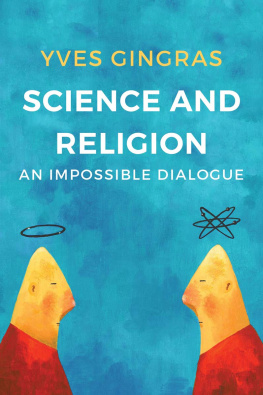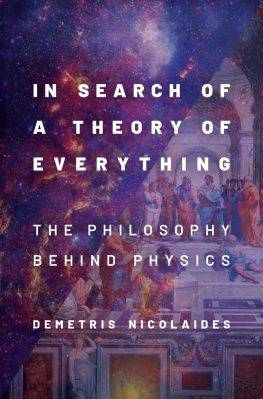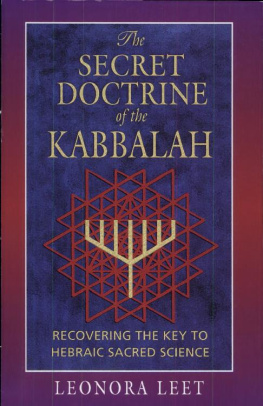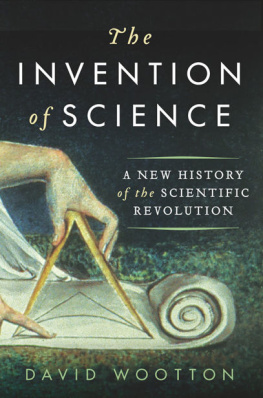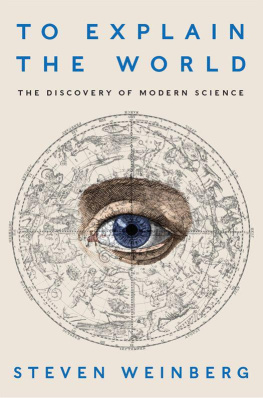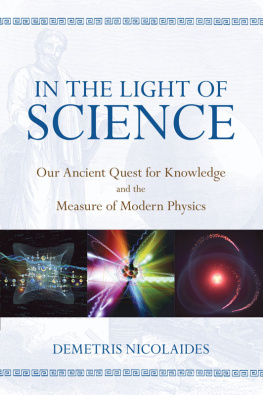
INTRODUCTION
The cave parable in Platos Republic elegantly captures the essence of nature and the goal of scientists: nature has its secrets, and it is the role of scientists to discover, or steal, them, as Prometheus stole divine fire from the gods and gave it to humanity.
Apparent reality is as incomplete and nebulous as the shadows of objects in the parable. The prisoners who live in the cave and see only shadows on the walls consider only these shadows to be real. They have no knowledge, none at all, of the objects that cast the shadows. But the prisoner who escapes from the cave has at last a better sense of reality and discovers for herself that the shadows are only a mere copy of the real objects. She sees that things are more than they appear. The parable helps us to realize that nature is much more beautiful and complex than the way the senses alone display it for us. And so for the scientist (as for the prisoner who escapes the illusive shadows of the cave) nature is comprehensible through both observation and rational contemplation. Logic unveils a much richer reality than the tangible one of mere sense perception alone. Ever since science opened the door to a rational understanding of nature, its discoveries have continued to amaze us by defying both common sense and apparent reality.
THE PARABLE
Imagine an underground cave where prisoners are held in chains since childhood and for many years thereafter, restricted from moving or even turning their heads, but are only able to look straight ahead and toward a wall in front of them. Behind and far from them is a fire the light of which projects on the wall shadows of various objects (including those of themselves, of passersby behind them, and of other things in general). Because of how they are bound, the prisoners see nothing else but these shadows. They believe that only these shadows are real, and the prisoners are utterly ignorant of the objects that project them, or generally of the greater truth about nature that is indeed accessible if only they could escape.
One day a prisoner does escape. Her instinctive curiosity guides her away from the darkness of the cave, first toward the fire and then upward and out of the cave and into the light of the sun. But being so long in the dark she is not accustomed to the light. And so she is frightened by her inability to see clearly. Gradually her eyes adjust, and she sees things she has never seen before, a panorama that is grand, boundless, magical. She is startled but also puzzled. Nature is so much different from the way she had imagined it. For the first time she sees mountains, flowers, people, animals; she sees the blue sky and the sea and the colors in the trees. She observes but also contemplates. She notices how similar all objects are to their shadows. And then for a moment she seems lost, anxious, absorbing all that is around her. While deep in thought she suddenly exclaims eureka! It is an exhilarating moment. She has discovered something. At last she has a better sense of reality because she realizes that the shadows in the cave are just mere copies of the real objects. Nature is more than it appears. But it can be understood!
Sad for her friends and morally obligated to free them from the deceptive darkness, she descends once more into the cave. But upon reentering she is frightened for a second time, for again she cannot see: her eyes have now adjusted to the light and are no longer accustomed to the dark. This does not go unnoticed by her friends, who think she is now different from them, that she has changed, that her vision is destroyed by the light. They think she is blinded by the light, not realizing it is they who are blinded by the dark. Her every effort to convince them otherwise and free them is futile and mocked. In fact any new knowledge she may impart is viewed as a threat, and they contend that anyone claiming to have such knowledge should be put to death.
MORALS
To know nature as it really is, we must use both our senses and logical reasoning. Sense perception alone is like the cave reality, incomplete but not absolutely false. What is false are the generalizations we make by relying solely on the experiences of the senses. Shadows are real, but not the only real things; shadows are not the truth, just part of it. Freeing oneself from the dark bondage of the cave in order to enter the light symbolizes the transition from a world of apparent reality, ignorance, and superstition to one of rational thought and potential enlightenment. In achieving such an escape, fear of learning (the pain in the eyes caused by the light) is eventually overcome, and superstition is replaced by reason.
The parable is also a story about ignorance and the cave-dwellers failure to recognize their ignorance. Not only do the prisoners lack knowledge, but they do not know that they lack it. They were prisoners of time-honored prejudices and illusive sense perceptions. The cave may be seen as a metaphor for the incomplete knowledge we have about everything and the dangers associated with that partial understanding; especially when we do not realize that our knowledge is only partial, and therefore we think we know more than we do. Leaving the cave (to be educated) is as difficult as entering it to make others aware (to educate). The latter is far more advantageous because one is at least equipped with some knowledge that can be utilized to possibly anticipate forthcoming challenges.
CONCLUSION
Reading a symbolic version of a very complex story as if the symbols were real and the symbolic version were the actual story is an inherent risk in the very symbols used. Sense perception by itself is telling us just a symbolic story of naturewe see only shadows or imperfect representations of reality. But when combined with our intellect the two offer hope of providing us with a more realistic version of the story of nature. The pre-Socratics realized early on that appearances deceive, that the sensible world is like a cave, both illusive and incomplete. But even though our senses can be deceived, our rational intellect is perceptive and so offers a much-needed check on the veracity of what our senses report. This has helped us advance from a strictly sensual worldview to one in which our reason carefully assesses and analyzes what our senses convey about the world beyond us. And these ancients found that nature is a lot more intriguing, mysterious, and beautiful than it may at first appear, but also that it is intelligible to the willing mind only through the careful and deliberative approach of science.

INTRODUCTION
Science (taken from the word for knowledge in Latin) is the systematic study of nature and the organization of acquired knowledge into timeless, universal, causal, and, most importantly, testable laws and theories that are derived from observation and rational consideration. A good scientific theory, therefore, makes experimentally verifiable predictions whose confirmation leads to the theorys acceptance as a true description of nature. The premise of science is the realization that with rational thought nature is comprehensible. Science holds that natural phenomena, while often appearing to be random and unpredictable, are actually orderly and to a certain degree predictable; they obey intrinsic causal laws that can be understood rationally without the need of invoking myths, superstition, supernatural forces, or the intervention of capricious and anthropomorphic gods.
Next page
